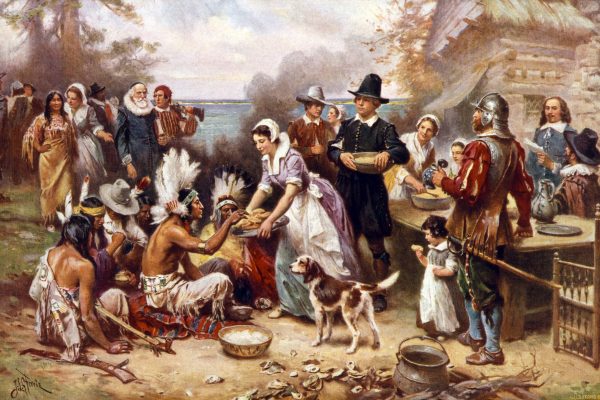On the death anniversary of Abu Talib, we remember his immeasurable contributions to Islam in its early years.
On the death anniversary of Abu Talib, we remember his immeasurable contributions to Islam in its early years.
Abu Talib, may Allah be pleased with him, was a man of high morals and compassion. He was the leader of Bani Hashim and a believer in Abrahamic monotheism. He assisted the Prophet Muhammad during times of tribulation and tried to help stabilize the budding religion of Islam. Although he was relatively poor, Abu Talib helped Muhammad in every way he could.
A big statement of Abu Talib’s faith in Allah is in how he raised his sons with the firm belief in the Oneness of God.
Before the Prophet was born, his father, Abdullah ibn Abdul-Muttalib, passed away due to a severe illness. Abdul-Muttalib took it upon himself to raise his grandson Mohammad for the rest of his life. Sadly, it wasn’t long before Muhammad was without a guardian again. His generous uncle Abu Talib immediately took him in despite his poverty. He raised Muhammad as his own son. He took him along on his journeys and taught him the art of trade, helping him become a successful businessman.
Abu Talib’s loyalty to Muhammad did not waver before, during, or after the Prophet’s revelation. On his deathbed, Abu Talib said
I command you to be good to Muhammad. He is the most trustworthy of the Quraish and the most truthful of the Arabs. He brought a Message which is accepted by the heart and denied by the tongue for fear of hostility. By God, whoever walks in the way of Muhammad shall be on the right road and whoever follows his guidance shall have a joyous future.”
[balughul Adaab, v 1 p 327]
Abu Talib did not deviate from the righteous path. Allah chose him to be one of the custodians of the Kaaba, the protector of the House of God. In Surat Al-Baqara, verse 124, it states that:
When Abraham was tried by his Lord with commands and he fulfilled them, Allah said, Indeed, I will make you a leader [Imam] for the people. Abraham said, And of my descendants? Allah said, My covenant does not include the wrongdoers.”
The decedents of Abraham mentioned in the Quran include the last prophet, Muhammad, and his holy progeny. His father, Abdullah ibn Abdul-Muttalib, had many brothers but only one from the same mother. His full brother was Abu Talib. The Imamate started with Abu Talib’s son, Imam Ali, and continued on to his grandsons, who also came from the same branch of Abdul-Muttalib through Mohammed’s daughter, Fatima. Undoubtedly the household in which the Prophet was raised is a pure one, which never fell into shirk even before he received his message. Out of Abdul-Muttalib’s twelve sons, the only two from the same mother are Abdullah (father of Muhammad) and Abu Talib (guardian of Muhammad and father of Ali).
How, then, could a man such as Abu Talib, who had never taken part in anything displeasing to Allah, who is known for his generosity, leadership, valor, and justice, be labeled as a disbeliever?
Throughout history there has been many efforts to discredit Abu Talib and diminish his reputation into nothing more than a kafr. There are those who quote a couple verses from the Quran and claim it alludes to him, like “It is not for the Prophet and those who have believed to ask forgiveness for the polytheists, even if they were relatives” (Surah al Tawba 9:113). What they fail to notice is that their interpretations of these verses have no real context or evidence. For instance this verse was revealed thirteen years after the death of Abu Talib, who did not die as a polytheist. The enemies of Imam Ali relentlessly tried to disfavor him by attacking his father’s reputation. They went as far as accusing Abu Talib for shirk, and that he had never recited the shahada publicly.
Imam Ja’far al-Sadiq said:
The case of Abu Talib was like that of the people of the Cave (Qur’an 18:9-26); they concealed their faith and disclosed shirk. Yet Allah bestowed upon them double reward.”
[al Kafi, vol 1 p 446]
Abu Talib concealed his beliefs (i.e. practicing Taqiyya) so that he could play as a mediator between the Prophet and the other chiefs of Mecca who refused the idea of the new religion. If it wasn’t for Abu Talib’s service, the Messenger of Allah could not have broken through to the idol worshippers that ruled Arabia to hear his Message.
A big statement of Abu Talib’s faith in Allah is in how he raised his sons with the firm belief in the Oneness of God. His sons are Talib, known for his honesty, Aqeel, known for his loyalty, Jafar, known for his nobility, and Ali, known as the Prince of Believers.
Abu Talib’s presence in relation to the continuity of Islam was not incidental. We who have been guided to Islam should be thankful for his unwavering support to the Prophet and his help in distributing the Message.





